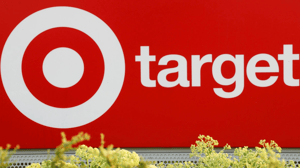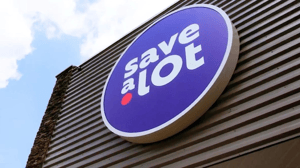Here Are the Most Ocean-Friendly Grocers: GreenpeaceHere Are the Most Ocean-Friendly Grocers: Greenpeace
Whole Foods, Hy-Vee, Aldi and Target among the top of the list. Whole Foods, Hy-Vee, Aldi and Target were among the top of the list.

Greenpeace's 10th Carting Away the Oceans report, which ranked grocers by sustainable seafood offerings and practices, revealed that while retailers across the nation have significantly improved their sustainable seafood offerings, single-use plastics continue to be a concern.
Whole Foods came in at the top of Greenpeace's most ocean-friendly grocers list, followed by Hy-Vee, Aldi and Target, respectively.
To make these findings, Greenpeace surveyed supermarkets to measure factors such as sustainable seafood policies, advocacy and initiatives, transparency and the overall quality and sustainability of the seafood in stock.
According to the report, none of the retailers profiled had comprehensive policies to "reduce and ultimately phase out their reliance on single-use plastics." However, Kroger, which ranked No. 11 on the list, and was called out for its use of plastic, with Greenpeace officials saying "this behemoth retailer must reduce its reliance on single-use plastics," revealed this week that it is now working to phase out all single-use plastic bags by 2025 and will make the first moves toward its goal starting in Seattle.
Greenpeace Oceans Campaigner David Pinsky said it is "time for major retailers to put the same energy into tackling the other issues facing our oceans and seafood workers, such as plastic pollution and labor and human rights abuses in seafood supply chains."
"It’s not truly sustainable seafood if it is produced by forced labor and then wrapped in throwaway plastic packaging," he said.
Despite the fact that Whole Foods took the first-place crown, the survey identified winners in all four categories, including Whole Foods for policy; Hy-Vee for both initiatives and transparency; and Trader Joe's (No. 14) for inventory.
Additionally, the survey identified three retailers that offer only sustainable, own-brand tuna, which included Whole Foods, Hy-Vee and Meijer (No. 10).
While Wegmans ranked No. 6 on the list, it was identified as a grocery that had seen a drop in score over the past year, having moved down from second place. Greenpeace attributed the drop in rank to the retailer's "jaw-dropping decision to procure both orange roughy and farmed Pacific bluefin tuna (special events)."
Trader Joe's, H-E-B (No. 19) and Price Chopper (No. 20) also made the list of retailers that have dropped in rank. Grocers that have shown improvement included Giant Eagle (No. 5), Kroger (No. 11), Southeastern Grocers (Mo. 16) and The Save Mart Cos. (No. 21).
Whole Foods, which earned a spot on the list for the fifth time, was praised for its new tuna policy that ensures all canned tuna sold in stores is sustainably caught, as well as calling for sustainable fisheries management.
“We appreciate being recognized again by Greenpeace for our work on seafood sustainability,” said Carrie Brownstein, global seafood quality standards coordinator for Whole Foods Market. “By continuing to advance our sourcing policies and practices, and advocate for improvements in fisheries management and traceability, we hope to inspire the entire seafood industry to turn the tide toward greater sustainability.”
Hy-Vee gained recognition for advocating for ocean health with decision-makers and educating its customers on sustainable seafood, while Aldi earned a spot in the top four for the first time for launching its own sustainable line canned tuna.
Target made the top four as well, but Greenpeace pointed out some areas where improvement is needed.
"Target has relatively strong policies and advocates for ocean health," Greenpeace officials wrote. "Unfortunately, with the reintroduction of farmed salmon in stores, Target recently broke its 2010 commitment to only sell sustainable wild-caught salmon."
About the Author
You May Also Like






